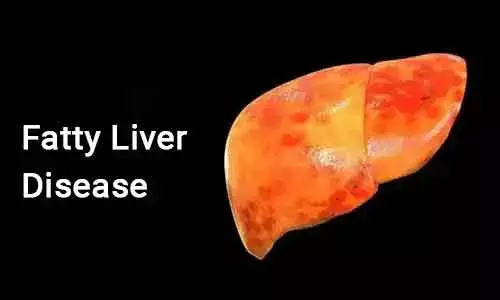- Home
- Medical news & Guidelines
- Anesthesiology
- Cardiology and CTVS
- Critical Care
- Dentistry
- Dermatology
- Diabetes and Endocrinology
- ENT
- Gastroenterology
- Medicine
- Nephrology
- Neurology
- Obstretics-Gynaecology
- Oncology
- Ophthalmology
- Orthopaedics
- Pediatrics-Neonatology
- Psychiatry
- Pulmonology
- Radiology
- Surgery
- Urology
- Laboratory Medicine
- Diet
- Nursing
- Paramedical
- Physiotherapy
- Health news
- Fact Check
- Bone Health Fact Check
- Brain Health Fact Check
- Cancer Related Fact Check
- Child Care Fact Check
- Dental and oral health fact check
- Diabetes and metabolic health fact check
- Diet and Nutrition Fact Check
- Eye and ENT Care Fact Check
- Fitness fact check
- Gut health fact check
- Heart health fact check
- Kidney health fact check
- Medical education fact check
- Men's health fact check
- Respiratory fact check
- Skin and hair care fact check
- Vaccine and Immunization fact check
- Women's health fact check
- AYUSH
- State News
- Andaman and Nicobar Islands
- Andhra Pradesh
- Arunachal Pradesh
- Assam
- Bihar
- Chandigarh
- Chattisgarh
- Dadra and Nagar Haveli
- Daman and Diu
- Delhi
- Goa
- Gujarat
- Haryana
- Himachal Pradesh
- Jammu & Kashmir
- Jharkhand
- Karnataka
- Kerala
- Ladakh
- Lakshadweep
- Madhya Pradesh
- Maharashtra
- Manipur
- Meghalaya
- Mizoram
- Nagaland
- Odisha
- Puducherry
- Punjab
- Rajasthan
- Sikkim
- Tamil Nadu
- Telangana
- Tripura
- Uttar Pradesh
- Uttrakhand
- West Bengal
- Medical Education
- Industry
Stevia extract may reduce biomarkers of fatty liver disease

Non-caloric sweeteners (NCS) are food additives providing sweetness without calories and are considered safe and/or not metabolized by the liver. The potential role of newer Non-caloric sweeteners on the liver is unknown.
A new study led by Rohit Kohli, MBBS, MS, shows that stevia extract can reduce markers of fatty liver disease. The results of the pre-clinical research, published in the journal Scientific Reports led to a clinical trial, now in progress.
The Centers for Disease Control and Prevention reports that obesity affects nearly 19% of children. An associated condition called non-alcoholic fatty liver disease affects one out of every 10 children. Fatty liver disease can lead to cirrhosis and liver cancer. Consumption of too much sugar can lead to both obesity and fatty liver disease.
"Sugary foods and drinks can cause scarring in the liver," says Dr. Kohli, "but we don't know how non-caloric sweeteners may affect liver disease." In a first-of-its-kind study, Dr. Kohli addressed and answered the question: Can non-caloric sweeteners improve signs of fatty liver disease?
Using a preclinical model, he tested two non-caloric sweeteners, sucralose and stevia extract. Both are widely available and appear in many sweetened foods and drinks. "We were interested in those two compounds because they are the newest and least studied in the context of liver disease and obesity," says Dr. Kohli.
The results were striking. "We compared these sweeteners head to head with sugar," he says. "Stevia extract lowers glucose levels and improves markers of fatty liver disease." These markers include fibrosis and fat levels in the liver. The study also uncovered some potential mechanisms that could be responsible for reversing these markers of fatty liver disease. "We saw a decrease in signs of cellular stress and some changes in the gut microbiome," says Dr. Kohli, "but there is more work to do in order for us to understand the clinical relevance."
The preclinical study was funded by the Stanley W. Ekstrom Foundation. The results led Dr. Kohli's team directly into a clinical trial - also funded by the Stanley W. Ekstrom Foundation - to test the effects of stevia in pediatric patients. "The exciting thing is that we have taken a problem that we see in the clinic, studied it preclinically, and now we are back to test the solution - all in under two years." says Dr. Kohli.
for further references log on to:
Dr Kamal Kant Kohli-MBBS, DTCD- a chest specialist with more than 30 years of practice and a flair for writing clinical articles, Dr Kamal Kant Kohli joined Medical Dialogues as a Chief Editor of Medical News. Besides writing articles, as an editor, he proofreads and verifies all the medical content published on Medical Dialogues including those coming from journals, studies,medical conferences,guidelines etc. Email: drkohli@medicaldialogues.in. Contact no. 011-43720751


